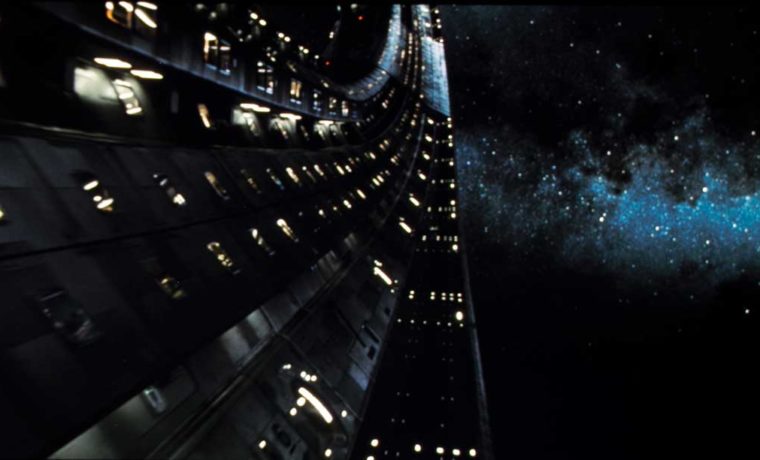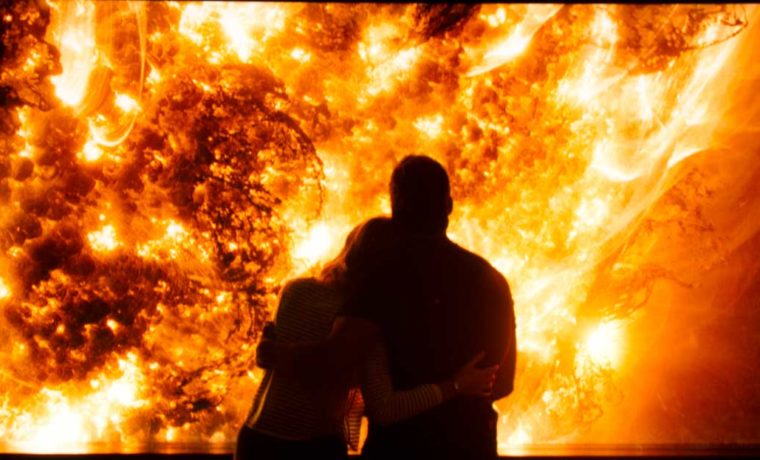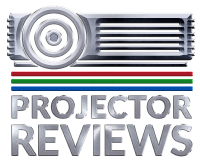As such, while there are 3000 lumen and 3500 lumen 4K UHD projectors out there, and that these Epsons only claim 2500 lumens, you can expect the Epsons to be basically as bright or brighter – calibrated (in this case our calibrated Natural mode), than those DLPs claiming far more lumens. Of course if you go to the Epsons’ very best mode – Digital Cinema, with its own, (but very different type of) color filter, you are down just over 1000 lumens, where many of these DLPs are once calibrated.
When it comes to placement flexibility, it’s no contest, not one of those 4K UHD DLPs comes close. Most lack lens shift, let alone offer a lot of it. None so far offer fully motorized zoom lenses with anything near 2:1 zoom ratios, and none offer Lens Memory!
All of those DLPs support HDR (ok, one or two of the originals did not), as do the Epsons, but not one of them, including the three 4K UHD laser projectors, can really do color better than the old REC709 standard (most fall a little short), whereas the Epsons in Digital Cinema achieve well over 90% of P3 color which is to say offer about 40+% wider color range than REC709, or any of those DLPs. Some of those laser projectors, should be able to approach good P3 color, but so far, Eric finds all of them to have at least one primary or secondary color that doesn’t even get to REC709. (OK, that was too techie: Short version – these Epsons in their best mode (without using the Cinema filter, offer as good or better color than any of those DLPs. (In fairness they start with list prices as low as $1299, vs $1999 for the HC4010.)
If you can’t spring for the higher price of these Epsons, my choices to save you a lot – the ViewSonic PX747-4K – good but not great color, is the least expensive – very close to $1000, or the BenQ HT2550/TK800 (choose the one that fits your room and usage best). The BenQ’s will cost more than the ViewSonic. If your budget only gets you to about $1500 look at the very smart Optoma UHD51A.
Or, you can spend more: If you like the smarts, and the unique design of LG’s HU80KA that will cost you more than these Epsons (or even the UBs), but you are getting both a very smart projector (same menus, features, mostly, as their better LCD TVs and OLED TVs), as well as a long life laser light engine. Now I definitely lean to the Epson for the better color, though over the LG. I think of the LG as more of a home entertainment projector rather than serious home theater, despite the interesting, and in many ways excellent feature set.
One area where some of the competition has an advantage – is support for HLG – Hybrid Log Gamma (discussed elsewhere in this review). That’s a newer (not a replacement) HDR solution than HDR10 which is the standard for 4K Blu-ray UHD discs, among other things. HLG is for broadcast, and should work well with streaming. A few of the DLPs, as well as that $4K JVC and the $5K Sony support HLG, but most, at this time do not yet.
You can check out our 2018 Best Home Theater Projectors report for more in each of the DLPs we reviewed. Also we’ll be publishing an update late January 2019, to compare a number of these projectors that weren’t shipping when we published our report, early Sept, just ahead of the big CEDIA show. This update, will be created after the even bigger CES show in Las Vegas right after New Year’s.
In fairness, some of those DLP projectors are the same resolution as these Epsons (1920x1080 pixels) but shift the pixels to hit the screen 4 times vs 2 for the Epsons. Others, such as the more expensive lasers, and the Optoma UHD65, use a slightly higher resolution chip: 2716x1528x2 (they hit the screen twice, like the Epson’s but with pixel sizes half way between native 4K and 1080p.
Truth is, if you are sitting say, 16 feet back from a 100” diagonal screen, you probably can’t tell which of these are sharper, as its more about their image processing than their chip resolution!
So, worry not about sharpness, but overall picture quality, obsolescence, etc.



